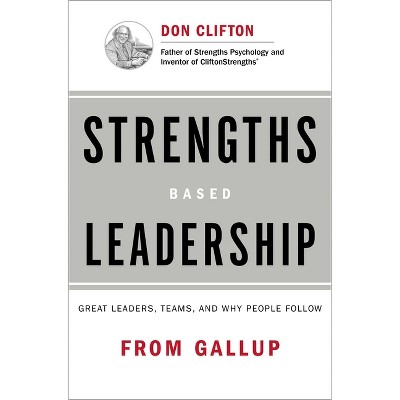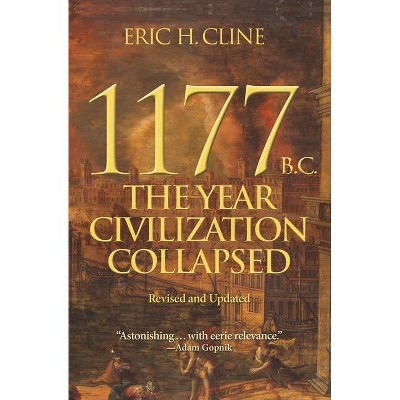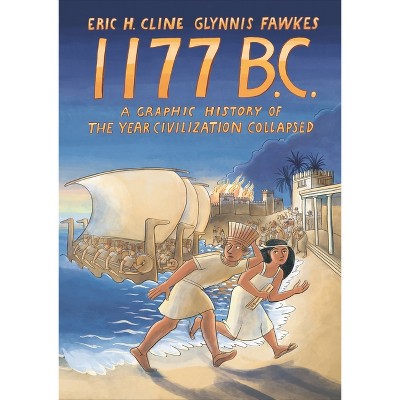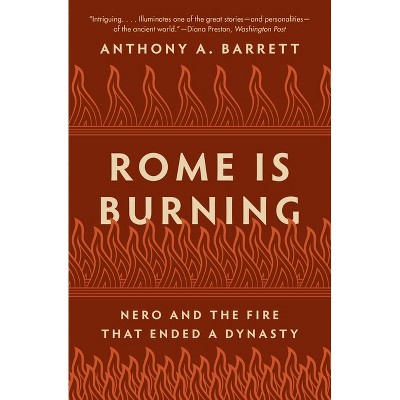Sponsored

After 1177 B.C. - (Turning Points in Ancient History) by Eric H Cline
In Stock
Sponsored
About this item
Highlights
- In this gripping sequel to his bestselling 1177 B.C., Eric Cline tells the story of what happened after the Bronze Age collapsed--why some civilizations endured, why some gave way to new ones, and why some disappeared forever "A landmark book: lucid, deep, and insightful. . . .
- About the Author: Eric H. Cline is professor of classics and anthropology at George Washington University.
- 352 Pages
- History, Ancient
- Series Name: Turning Points in Ancient History
Description
About the Book
"In this gripping sequel to his bestselling 1177 B.C., Eric Cline tells the story of what happened after the Bronze Age collapsed-why some civilizations endured, why some gave way to new ones, and why some disappeared forever. At the end of the acclaimed history 1177 B.C., many of the Late Bronze Age civilizations of the Aegean and Eastern Mediterranean lay in ruins, undone by invasion, revolt, natural disasters, famine, and the demise of international trade. An interconnected world that had boasted major empires and societies, relative peace, robust commerce, and monumental architecture was lost and the so-called First Dark Age had begun. Now, in After 1177 B.C., Eric Cline tells the compelling story of what happened next, over four centuries, across the Aegean and Eastern Mediterranean world. It is a story of resilience, transformation, and success, as well as failures, in an age of chaos and reconfiguration.After 1177 B.C. tells how the collapse of powerful Late Bronze Age civilizations created new circumstances to which people and societies had to adapt. Those that failed to adjust disappeared from the world stage, while others transformed themselves, resulting in a new world order that included Phoenicians, Philistines, Israelites, Neo-Hittites, Neo-Assyrians, and Neo-Babylonians. Taking the story up to the resurgence of Greece marked by the first Olympic Games in 776 B.C., the book also describes how world-changing innovations such as the use of iron and the alphabet emerged amid the chaos. Filled with lessons for today about why some societies survive massive shocks while others do not, After 1177 B.C. reveals why this period, far from being the First Dark Age, was a new age with new inventions and new opportunities"--Book Synopsis
In this gripping sequel to his bestselling 1177 B.C., Eric Cline tells the story of what happened after the Bronze Age collapsed--why some civilizations endured, why some gave way to new ones, and why some disappeared forever
"A landmark book: lucid, deep, and insightful. . . . You cannot understand human civilization and self-organization without studying what happened on, before, and after 1177 B.C."--Nassim Nicholas Taleb, bestselling author of The Black Swan At the end of the acclaimed history 1177 B.C., many of the Late Bronze Age civilizations of the Aegean and Eastern Mediterranean lay in ruins, undone by invasion, revolt, natural disasters, famine, and the demise of international trade. An interconnected world that had boasted major empires and societies, relative peace, robust commerce, and monumental architecture was lost and the so-called First Dark Age had begun. Now, in After 1177 B.C., Eric Cline tells the compelling story of what happened next, over four centuries, across the Aegean and Eastern Mediterranean world. It is a story of resilience, transformation, and success, as well as failures, in an age of chaos and reconfiguration. After 1177 B.C. tells how the collapse of powerful Late Bronze Age civilizations created new circumstances to which people and societies had to adapt. Those that failed to adjust disappeared from the world stage, while others transformed themselves, resulting in a new world order that included Phoenicians, Philistines, Israelites, Neo-Hittites, Neo-Assyrians, and Neo-Babylonians. Taking the story up to the resurgence of Greece marked by the first Olympic Games in 776 B.C., the book also describes how world-changing innovations such as the use of iron and the alphabet emerged amid the chaos. Filled with lessons for today's world about why some societies survive massive shocks while others do not, After 1177 B.C. reveals why this period, far from being the First Dark Age, was a new age with new inventions and new opportunities.Review Quotes
"Winner of the Biblical Archaeology Publication Award, Popular Book on Archaeology Category"
"[A] gripping sequel. . . .We have much to learn from the ancient civilisations- both the survivors and those that became extinct."---Sarah Griffiths, Ancient Egypt
"[After 1177 B.C.] successfully demonstrates to nonspecialist readers how historical facts relating to ancient societies are known, making no effort to ignore those areas where scholarly interpretations differ."-- "Choice"
"A Science News Favorite Book of the Year"
"A Financial Times Best Book of the Year"
"A fascinating and vividly written book with lessons for today."---Jeff Popple, Canberra Daily
"After 1177 B.C. is a must-read for anyone interested in ancient history, but it's also much more than that. It's a book about resilience in the face of adversity, about how societies can rebuild and reinvent themselves after seemingly insurmountable challenges. With that in mind, Eric Cline offers not just a history of the past but a blueprint for the future, making this a timely and important work."---Tibi Puiu, ZME Science
"
Cline is one of those rare scholars with the gift of communicating scientific and historical data to the public, joining the ranks of Jared Diamond, Ian Morris, Niall Ferguson, and others.
"---Thomas E. Levy, Science"Cline takes us through the. . . rise of the west in a lively and engaged manner; his range of knowledge is most impressive, as is his love of the subject."---Chris Gosden, Times Literary Supplement
"Superb."---Dr. Cliff Cunningham, Sun News Austin
"Anyone concerned with avoiding the end of the world as we know it might be especially interested in the societies that flourished in the wake of the Late Bronze Age collapse. . . . [T]hought provoking."---Bruce Bower, Science News
"1177 B.C. traced the scope of the Bronze Age collapse and inquired into its causes. Now, Cline has written a sequel, After 1177 B.C.: The Survival of Civilizations, which examines the aftermath. . . . [he] points out that not everything went dark all at once, and that there were green shoots among the ruins."---Jacob Mikanowski, Chonicle of Higher Education
"A remarkable and vital book . . . a masterly overview. . . . After 1177 B.C.--well written in a clear, engaging, even witty style, using archaeology with sensitivity and lightness of touch--is a tour de force, heartily to be recommended to anyone interested not only in antiquity but in the present and potential future."---David Stuttard, Classics for All
"Sequels aren't just for Hollywood blockbusters. Historian Eric H. Cline enjoyed a huge hit with his book about the end of the Bronze Age. In 1177 B.C.: The Year Civilization Collapsed he showed how remarkably interconnected the ancient world was some 3000 years ago and how that and a convergence of events led to its downfall and the First Dark Ages. Now what? That's the question he answers in After 1177 B.C., showing which nations rebuilt themselves, which new ones emerged and why? And keep an eye out for the "Sea Peoples;" they are a wily bunch."---Michael Giltz, Parade
"Where [1177 B.C.] offered an almost relentlessly grim depiction of decline and fall, [After 1177 B.C.] gives us a more granular, detailed look at how different societies coped with the transformations of the Late Bronze Age collapse in contrasting ways. . . . Curiously reassuring."---Richard Kreitner, Slate
"Expert, ingenious and endlessly fascinating. . . . First in 1177 B.C. and now in After 1177 B.C., Mr. Cline has rewritten our understanding of a distant but resonant age."---Dominic Green, Wall Street Journal
"Cline distills an immense amount of material into a highly readable narrative that in its conclusion draws startling parallels with contemporary climate change. It's a dizzying feat of scholarship."---Publishers Weekly, starred review
"
[Cline] considers potential lessons for our future by using modern 'resilience theory' to help us better understand the past. Can we be better prepared to avoid societal collapse than they were? For me, it's all unfamiliar territory, as I knew so little about these ancient people, but I enjoyed learning from Cline. His work is vital, and I intend to read him again.
"---Tim McCarthy, Boswell Book Company, Milwaukee, WI"Brilliant. . . . A superb work to interest history buffs for every period."---Kirkus, starred review
"Cline mixes archaeology, history, climate science, and social theory in this insightful work that never pushes evidence beyond its weight. . . . [A] compelling, original, and fruitful story. This title has significant meaning in an overstressed world. For more than just history buffs."-- "Library Journal, starred review"
About the Author
Eric H. Cline is professor of classics and anthropology at George Washington University. He is the author of Three Stones Make a Wall: The Story of Archaeology, Digging Deeper: How Archaeology Works, 1177 B.C.: The Year Civilization Collapsed, and (with Glynnis Fawkes) 1177 B.C.: A Graphic History of the Year Civilization Collapsed (all Princeton).Shipping details
Return details
Guests also viewed




![Three Exemplary Novels/Tres Novelas Ejemplares - (Dover Dual Language Spanish) by Miguel De Cervantes [Saavedra] (Paperback)](https://target.scene7.com/is/image/Target/GUEST_012a9946-1a10-4059-a784-4600f871a465)





